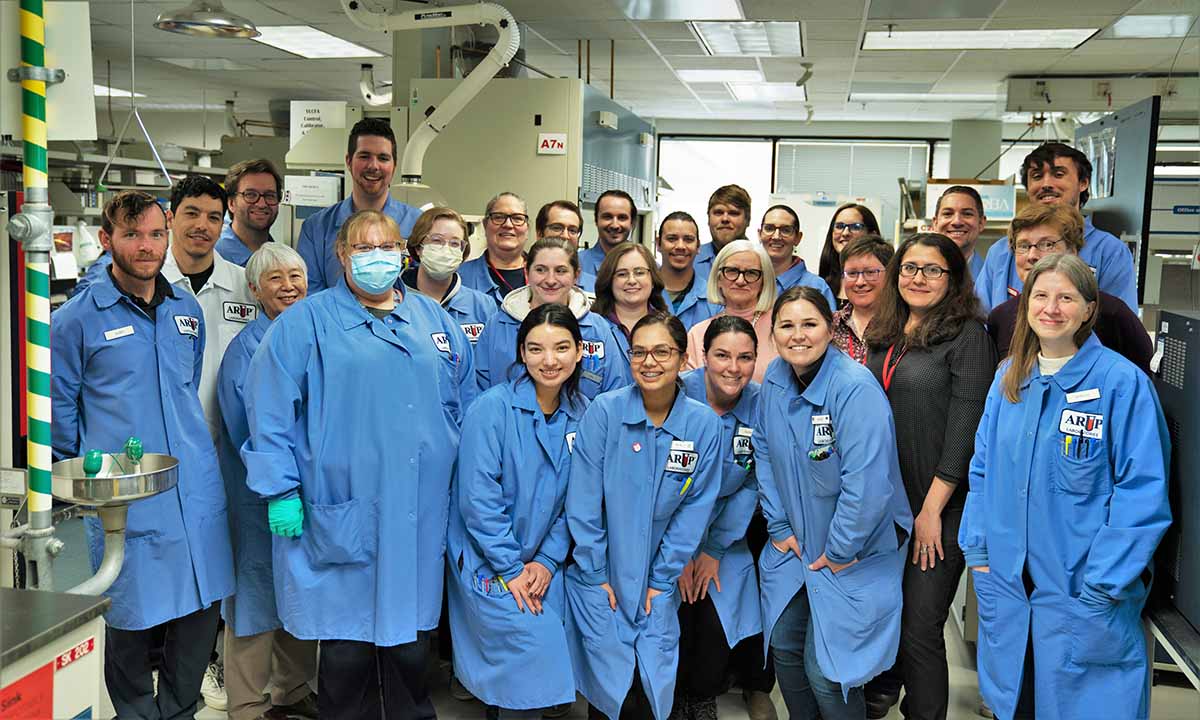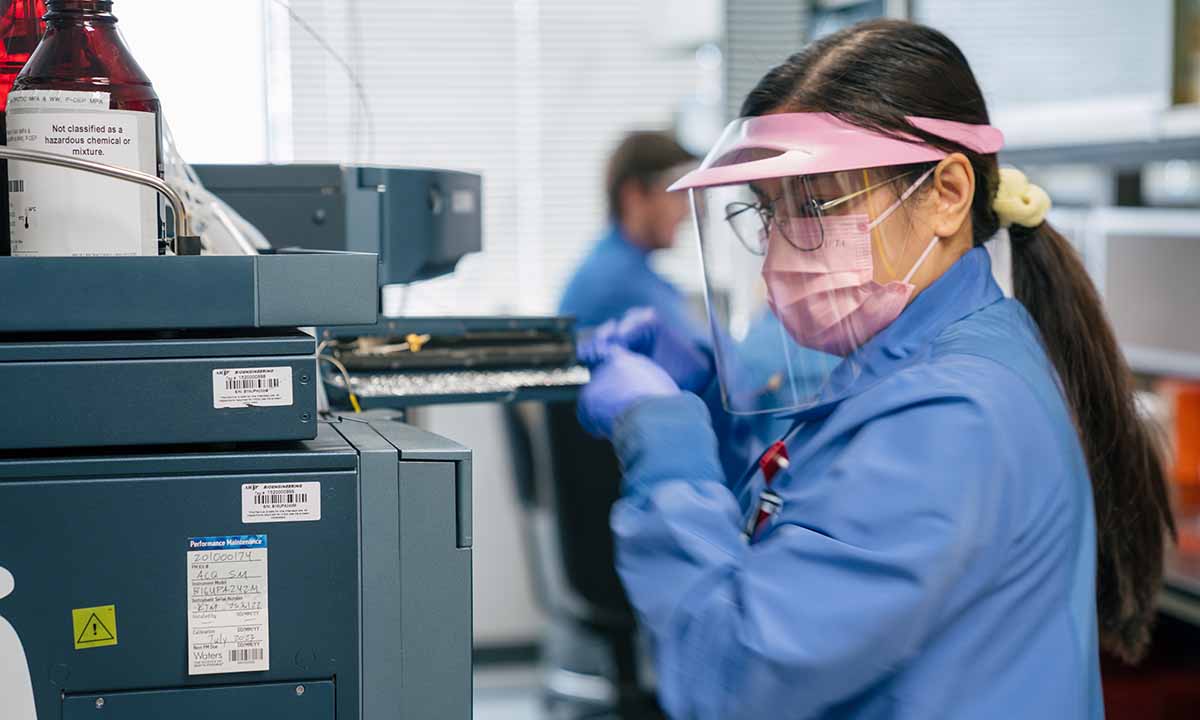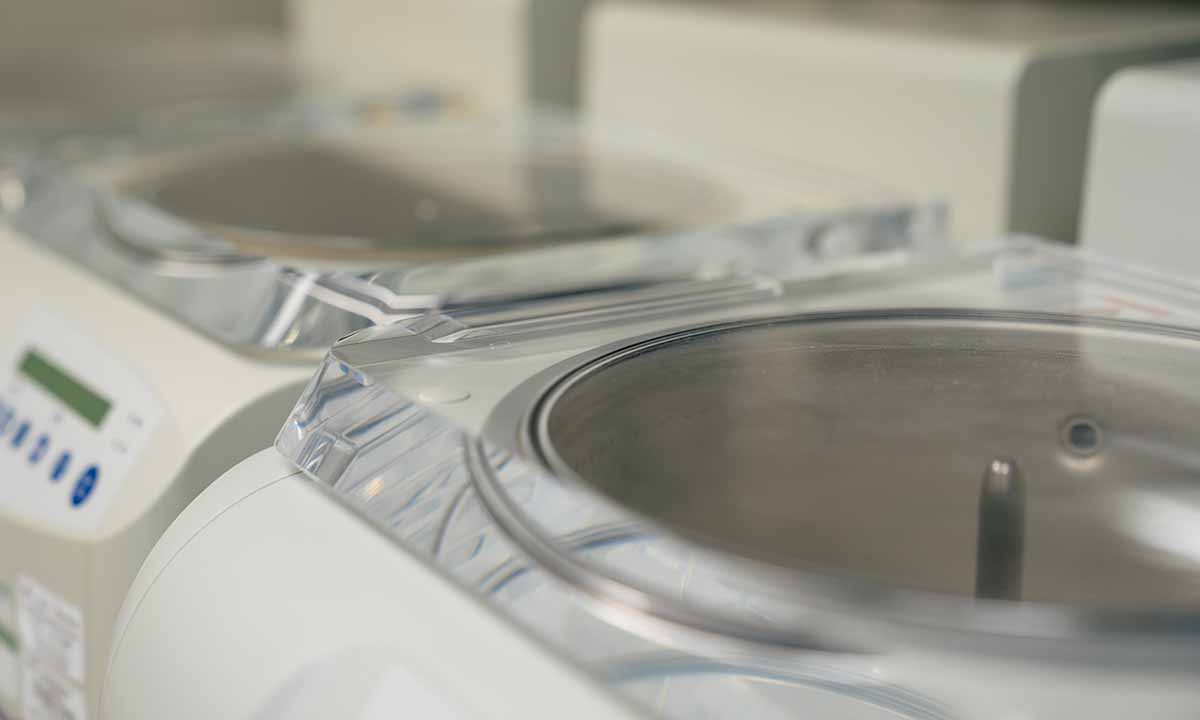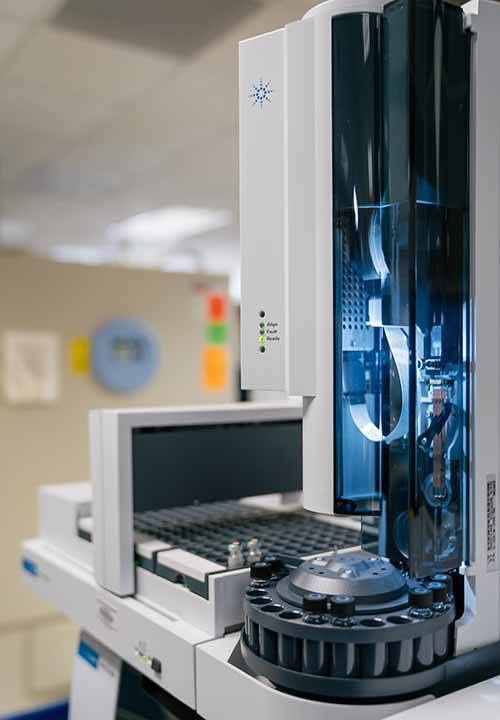
Members of the Biochemical Genetics laboratory gather for a photo.
Most people have a basic understanding of how metabolism works: calories in; energy out. Maybe the rate of metabolism comes to mind. How quickly or slowly someone burns calories can affect their wellness plans and daily routines.
Behind the surface, the functioning of metabolic processes is infinitely more complex than it seems. When interruptions occur in the metabolic chain, a buildup or deficiency of analytes can become a severe problem. This is the case with metabolic disorders. These serious conditions need to be diagnosed early in life, then treated and monitored throughout an individual’s lifespan.

The Biochemical Genetics (BCG) lab at ARUP performs testing designed to screen, diagnose, and monitor therapy for patients with metabolic disorders. These diagnoses can prevent organ failure, severe disability, and even death. Something as simple as dietary changes can mitigate the effects of metabolic disorders. On top of its critical nature, the testing BCG performs is extremely complex, and each result requires the interpretation of board-certified medical directors.
Impaired activity of enzymes causes the accumulation of metabolites proximal to the metabolic block in those with metabolic disorder, resulting in clinical manifestations of these conditions. “If you don’t diagnose a metabolic disorder, the patient can die or suffer irreversible organ damage,” said Marzia Pasquali, PhD, FACMG, section chief of BCG. “By diagnosing these conditions early and treating them early, you can prevent intellectual disability and irreversible organ damage, including that of the brain.”
All of the analytes measured by BCG testing are vital and tell an intricate story about each patient. “We use all of the results to come up with the diagnosis,” said Pasquali. “It’s like completing a puzzle. And every case is a different puzzle. Some of them are like 12-piece puzzles, so they’re pretty obvious. Some of them are 500-piece puzzles.”
ARUP’s BCG lab offers services to patients and physicians that distinguish it from other reference labs. Working in a large laboratory with varied, high-volume testing gives BCG professionals exposure to many unique cases. Despite the high volume, ARUP’s BCG medical directors form a close bond with physicians who frequently order BCG testing. “I have several of them on speed dial on my cell phone,” Pasquali said. “We are good friends. It’s a very small community, so we all know each other.”

The BCG medical directors also collaborate closely with the University of Utah’s metabolic clinic. This, along with their close relationships with ordering physicians, exposes them to a holistic picture of metabolic disorders.
At every stage of the testing process, a BCG employee helps to assemble the pieces to a patient’s puzzle. This process starts with the technicians, who organize incoming specimens in batches based on priority, temperature requirements, and the type of testing ordered.
Next, the sample goes through the extraction process and testing is performed by a medical laboratory scientist (MLS) or technologist. These certified experts have a breadth and depth of experience in several BCG tests. Devin Davis, MLS(ASCP), worked in a blood bank, other chemistry labs, and a hospital STAT lab before landing in BCG at ARUP.
Davis feels that the BCG lab stands out from his other experiences due to the complexity of testing and use of manual equipment. He frequently works on the manual enzyme bench. There, he performs some testing with electrophoresis and some on the SpectraMax, a spectrophotometer and spectrofluorometer instrument that detects enzyme activity deficiencies.
After an MLS or technologist completes the testing, a medical director must review each result. Due to the complexity of testing, they evaluate the pattern of metabolites, not only their levels, and interpret the results in writing for ordering physicians. They provide as much detail as possible to give physicians the context they need to better care for their patients.

All testing that arrives in the BCG lab needs to be addressed promptly, but some orders are especially time sensitive. “A patient could be crashing in the hospital when doctors order these tests,” said Chantry Clark, group manager of Integrated Oncology and Genetics. “We have to coordinate those STAT requests with the medical directors, who are on call 24/7.” The BCG lab and medical directors diligently coordinate STAT requests. Once results are available, those results are called to the provider as soon as possible. Medical directors are also on call 24/7 to discuss results in detail with the provider.
Beyond day-to-day operations, quality control (QC) specialists must ensure that all testing is accurate through routine QC monitoring. Jory Pett, C(ASCP), technologist specialist II, reviews result trends and shifts over time, proactively finding ways to remove confounding factors. Fine details can make slight changes to testing outcomes, so her role in controlling quality is vital.
“One time, the bench tested different pipette tips for one of our assays, and that’s all it took to alter results,” Pett said. “Some assays are very sensitive and are influenced by such differences.” Aside from catching small adjustments in testing, Pett also helps put data together to validate new controls.
The employees of BCG don’t take their responsibilities lightly. “They never complain when there is an expedited sample,” Pasquali said. “They are very engaged, and they really do care. There is a patient behind each result. It’s not just a number.”
















